NATO foreign ministers met in Brussels to prepare for the NATO summit and discuss defense investment and burden-sharing. They addressed relations between Washington and member states and renewed US commitment.

- Europe and Arabs
- Saturday , 5 April 2025 9:42 AM GMT
Brussels: Europe and the Arabs
NATO foreign ministers concluded their two-day meeting in Brussels on Friday, focusing on preparations for the upcoming NATO summit in The Hague, defense investment, burden sharing, Allied support for Ukraine, and cooperation with partners. According to a final statement issued by NATO headquarters in Brussels last night,
Although many international topics were on the meeting's agenda, the media highlighted one topic that was not officially on the agenda: relations between Washington and other capitals. It was also an opportunity to exchange views with US Secretary of State Marco Rubio.
The US administration's recent decisions to impose tariffs on imported goods—20% on products from the European Union—have caused concern and even discontent in some countries.
Polish Foreign Minister Radoslaw Sikorski also addressed this issue. He acknowledged that Europe has a trade surplus with the United States, but that the United States must also remember its huge surplus in services sales. According to the European News Network website in Brussels: Euronews: "The transatlantic region is very closely linked economically. European investments and savings also flow across the Atlantic, where they are invested in the American stock market and in the prosperity of the United States. This is mutually beneficial. If something isn't broken, it's better not to fix it," said Minister Sikorski.
He also touched on the US military commitment within NATO. He said that US President Donald Trump assured the leaders that Article 5 of the North Atlantic Treaty remains in effect. He added: "It's good that the new administration is discovering that allies are assets, not burdens, just as allies were—and I reminded you of this in my speech—when the alliance first invoked Article 5 of the North Atlantic Treaty, and it was to the benefit of the United States. After all, we, as Poland, had no national interests in Afghanistan." “We did this out of friendship and solidarity within the Alliance towards the United States,” Sikorski recalled.
Nevertheless, representatives of the countries that make up the so-called “coalition of the willing” will meet next week at NATO headquarters. The topic will, of course, be the war in Ukraine.
According to a NATO statement, on the anniversary of the alliance’s founding, the Secretary General said that “with the world becoming more dangerous,” NATO has never been more needed: “We are united in our commitment to each other in this Alliance.”
The statement explained that on Thursday, Mr. Rutte hailed “the largest increase in defense spending on the European side of NATO since the end of the Cold War.” He welcomed US Secretary of State Marco Rubio to his first ministerial meeting, thanking him for his tireless diplomacy and support for NATO. The North Atlantic Council then met for a working lunch, focusing on defense investment and preparations for the summit in The Hague.
This was followed by a meeting with partners from the Indo-Pacific region: Australia, Japan, the Republic of Korea, and New Zealand. Mr. Rutte said: “The The security of the Indo-Pacific and Euro-Atlantic regions is more interconnected than ever before. The war in Ukraine is just one example, as China, North Korea, and Iran continue to support the Russian war machine. He added, "This poses risks to us all."
On Thursday evening, the ministers met with Ukrainian Foreign Minister Andriy Sepah, as part of the NATO-Ukraine Council, where they were also joined by EU High Representative for Foreign Affairs and Security Policy Kaja Kallas. Secretary General Rutte said, "We must ensure that a ceasefire or peace agreement, if reached, is durable and lasting." He reaffirmed NATO's support for Ukraine and welcomed the Allies' pledge of more than €20 billion in military aid in the first quarter of 2025.
The ministers concluded Friday morning with a meeting of the North Atlantic Council with High Representative Kallas, where they discussed NATO-EU cooperation, defense industrial capacity building, the situation in the Western Balkans, and support for Ukraine. The Secretary General concluded his Friday press conference by emphasizing that NATO remains the cornerstone of transatlantic security and global stability: "Over the years, by working together, Allies have achieved security through strength. Based on what I've heard over the past two days, we're on the right track to continue to achieve that in the near future."


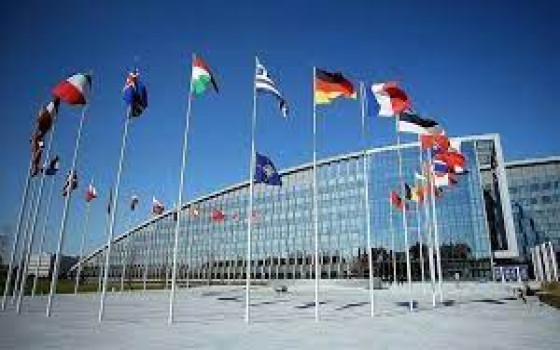
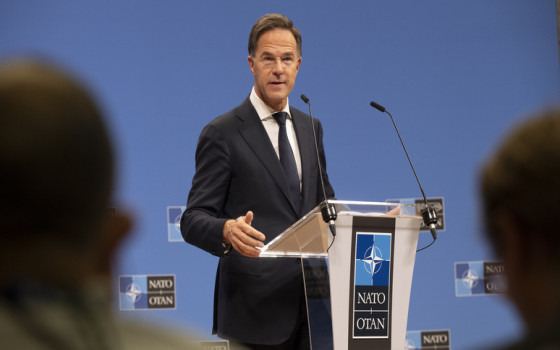
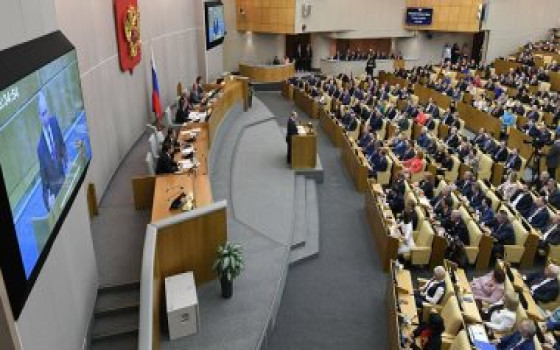
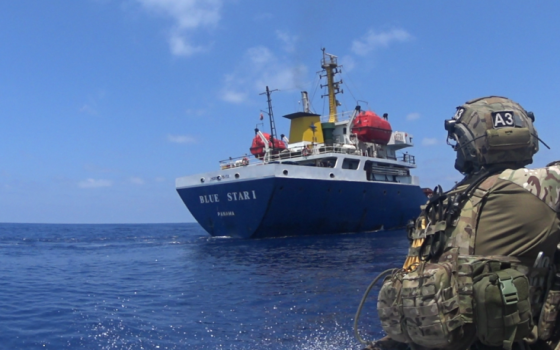
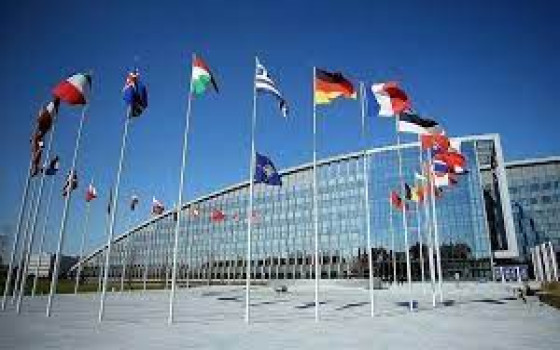
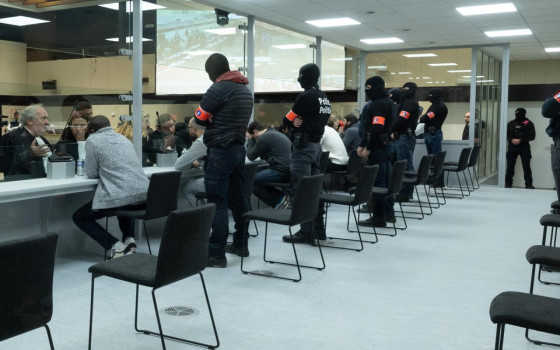
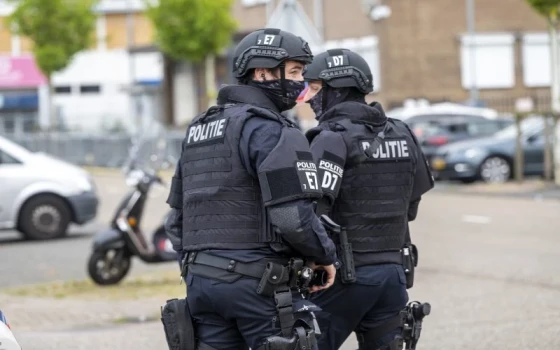
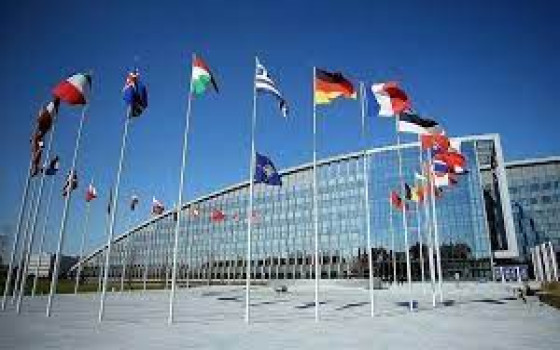
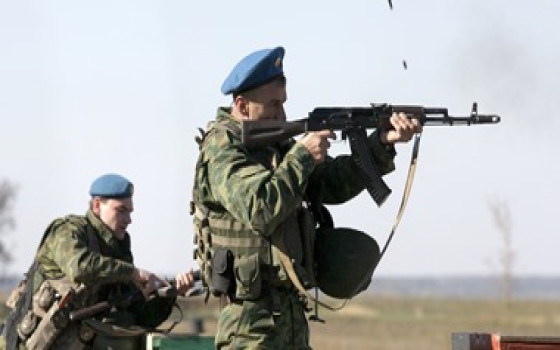
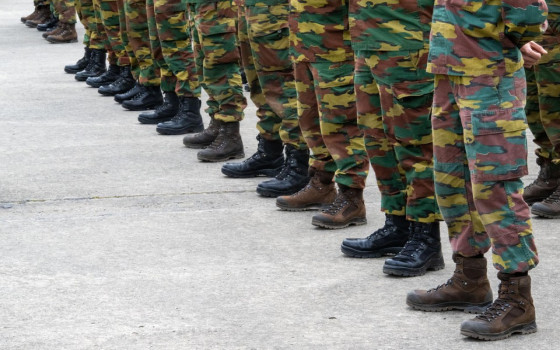

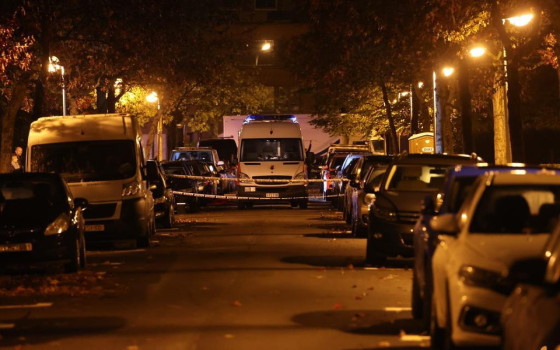
No Comments Found